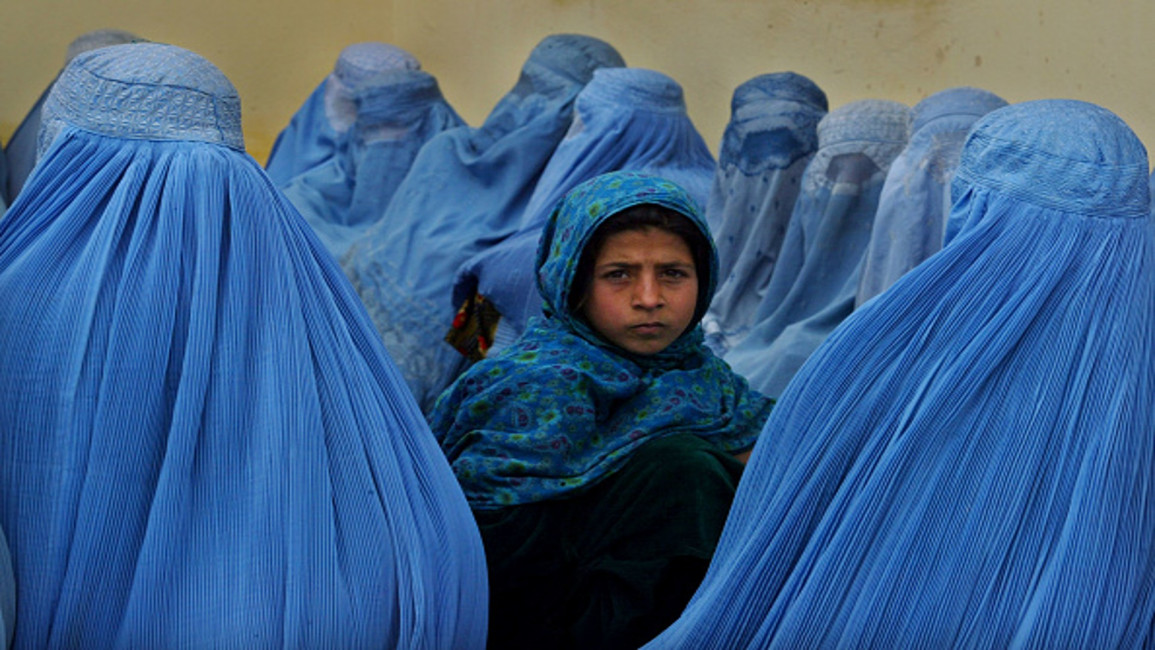Afghan women speak of difficulties in bringing abusers to justice: report
The Afghan government is failing to ensure accountability in cases of violence against women, undermining progress to protect women’s rights, Human Rights Watch said in a new report.
Afghanistan ratified a landmark legislation on the Elimination of Violence against Women (EVAW) in August 2009 but has since failed to adequately implement it, the rights group said. Women’s rights also face an existential threat from a sweeping Taliban advance and the completion of the US troops’ withdrawal.
Despite the EVAW law mandating punishments for 22 acts of violence against women, victims related their failed attempts to pursue justice in a 32-page HRW report titled "‘I Thought Our Life Might Get Better’: Implementing Afghanistan’s Elimination of Violence against Women Law."
Fighting has intensified in Afghanistan and fears of Taliban control loom. HRW’s @pagossman talks with @FereshtaAbbasi about why now is the time to support women’s rights there. https://t.co/TanzyVCAsV pic.twitter.com/SK7M9HmFoJ
— Patricia Gossman (@pagossman) August 5, 2021
A woman referred to with the pseudonym Sitara to protect her identity said she fled her husband after he attacked her with a knife and threw acid on her face. She tried to file a case but was told her husband could not be found.
"It has been two-and-a-half years and they even have not found my husband. They don’t care for my case. I have gone to the police and the [EVAW office] many times—they say that they can’t find my husband. I won’t get peace until he is arrested. If I see him even from a distance, still I will be afraid of him," she said.
Police failure to arrest the suspects is one of the most common reasons that cases do not progress, Human Rights Watch found.
Najla, a woman in Herat whose husband frequently beat her, said she sought help from the Ministry of Women’s Affairs and escaped to a shelter. Her in-laws have accused her of shaming the family and threatened her. "When I get out of the shelter, they will kill me. My husband’s family threatened me, and the worse thing is that I don’t have anyone to support me."
In rape cases, police are often pressured not to make an arrest. The girl or woman, instead, may face charges of "zina," or sex outside marriage. Sohela, a 17-year-old girl in Bamiyan, was briefly detained after reporting that she had been raped by the son of a prominent family in the district.
The report's findings were based on 61 interviews with women and girls who had reported crimes, prosecutors, judges, lawyers, legal aid providers, as well as advocacy groups.
With donor funding and global interest in Afghanistan declining alongside the number of foreign troops in Afghanistan, women’s rights organisations and other civil society groups have raised concerns that there will be less international support for the advocacy and training needed to protect and strengthen implementation of the law.
The EVAW law, decreed by the president in 2009 and reconfirmed in 2018, makes 22 acts of abuse toward women criminal offences, including rape, battery, forced marriage, preventing women from acquiring property, and prohibiting a woman or girl from going to school or work.
The law has led to a rise in both reporting and investigations of violent crimes against women and girls. However, its full implementation remains elusive.
Police, prosecutors, and judges are still deterring women from filing complaints and pressing them to seek mediation within their family instead. Women who experience abuse are still being subject to family pressure, the stigma associated with filing a complaint and fear of reprisals, including taking children away.
Hamida, a resident of Balkh province, was beaten by both her husband and father, who threatened to provide her husband with a weapon to kill her if she continued to complain. After a severe beating, her sister-in-law took her to a shelter.
"The prosecutor and my attorney told me to return home and sacrifice myself for my children… But I told them I have not come to a hospital only to go back home. My life won’t get better there," she said.
Women also face huge obstacles to registering cases. Police discourage women from filing a case and pressure them to go home and reconcile, Human Rights Watch found. Even if a woman manages to file a case, pressure from relatives frequently compels her to withdraw it. In most cases, women do not have access to lawyers.
Patricia Gossman, associate Asia director at Human Rights Watch, said: “International donors need to strengthen their commitment to protect Afghan women caught between government inaction and expanding Taliban control."
"Governments that have long supported women’s rights in Afghanistan should advocate forcefully for enforcement of the EVAW law, which has driven slow but genuine change."



